Prepare yourself, we have a lot of new products this week! Tools, cables, sensors; there should be a little something for everyone.
ReplaceMeOpen
ReplaceMeClose
Just a side note, I've tested the HDMI to VGA adapter on my Kindle Fire and it worked like a charm. So, if you have a tablet that you want to use on something that doesn't have HDMI, the adapters are good for that too.
The H2OhNo! is a simple water alarm kit. But it's much more! At the heart of the kit is an ATTiny85, which can be reprogrammed for other uses. Check out the hookup guide for instructions on how to assemble the kit, reprogram it, and even some good information about running the ATTiny85 in low-power mode. Even if you don't need a water sensor, it's worth checking out.
Need to tweeze some stuff? Check out our new cross-lock tweezers. We have them in two varieties this week, straight and curved. They work great for SMD rework and have an ESD coating so you don't zap your chips.
I think it's safe to say that single board computers like the Raspberry Pi, Beaglebone Black, and pcDuino are pretty popular. However, they all have an HDMI video output. So what are you supposed to do if you don't have an HDMI capable display? You could curl up into a ball and cry in the corner, but that wouldn't be very productive. We suggest you check out the HDMI to VGA adapter, or the HDMI to DVI cable. They should allow you to use just about any display you want. Keep in mind the cables have a standard HDMI on one end, so you still might need an adapter if you need to go to a micro-HDMI or mini-HDMI port.
We are now carrying the Beaglebone Black. The BeagleBone Black is a low-cost credit-card-sized development platform with good support from a fast-growing community. The Beaglebone Black differs slightly from the regular version by providing you with an onboard micro HDMI port, 512MB of DDR3L DRAM, 2GB on board flash memory, an AM3359 processor at 1GHz, and removing the onboard JTAG. It's a pretty powerful little board.
Just exactly how humid is it right now? I bet you don't know. If you had this breakout board, you would know. The HTU21D is a low-cost, easy to use, highly accurate, digital humidity and temperature sensor. All you need is two lines for I2C communication and you’ll have relative humidity readings and very accurate temperature readings as a bonus!
Speaking of sensors, what if you need to detect current? The INA169 is a high-side current monitor which allows you to detect current up to around 5A from DC voltage up to around 60V! It's small, elegant, and even has a footprint for a power resistor so you can set your current range.
We have the Deluxe Tool Kit back in stock this week. Due to shipping restrictions, we can no longer ship these kits with the flux pens, so this new version doesn't have flux pens, but does have safety glasses. It has (nearly) all the tools you need to get started.
We've been using this 4-pin SMD male header in production and some people were asking for it, so here it is! This is the same one we use on the graphic serial LCD backpack.
As with the header above, some people were asking for us to carry this SMD audio jack separately. It's a 3.5mm TRRS SMD jack, perfect for applications where you need that extra pin for control or a microphone.
We have a few leftover Propeller P8X32A chips from the CMUcam V4. They are pretty amazing little chips. They can be used for just about anything. They even run 8 32-bit cores for performing simultaneous tasks independently or cooperatively. Check them out!
Lastly, we are selling replacement cables for the PicoBoard. These 8" cables have alligator clips on one side and a 2.5mm mono audio jack on the other. You can use them with your PicoBoard, or figure out something else to use them for!
Well, there you have it, another Friday New Product Post. Thanks for reading, watching, and being here for us. See you next week, we'll have even more new stuff.
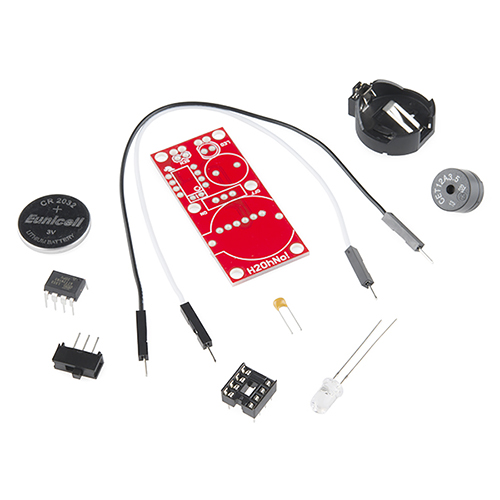
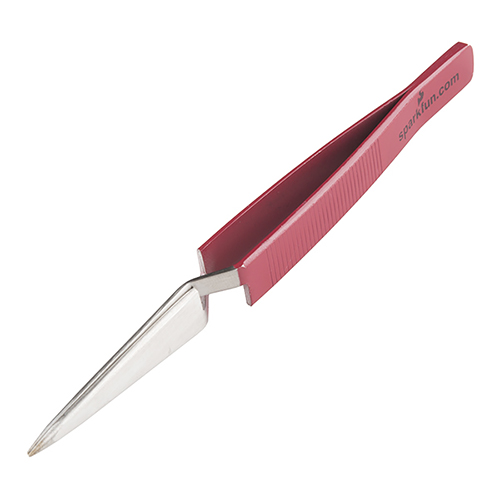
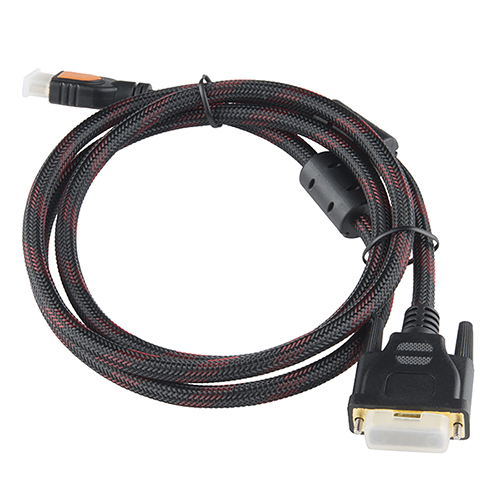
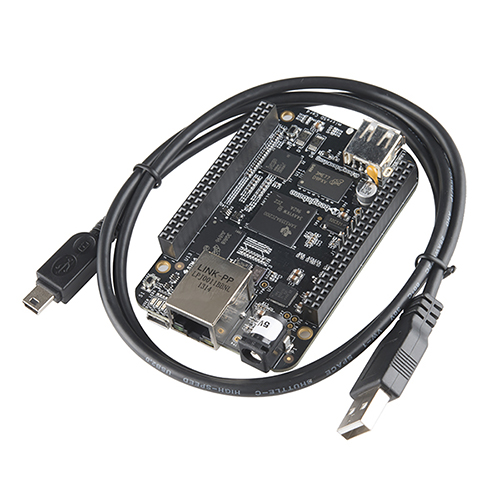
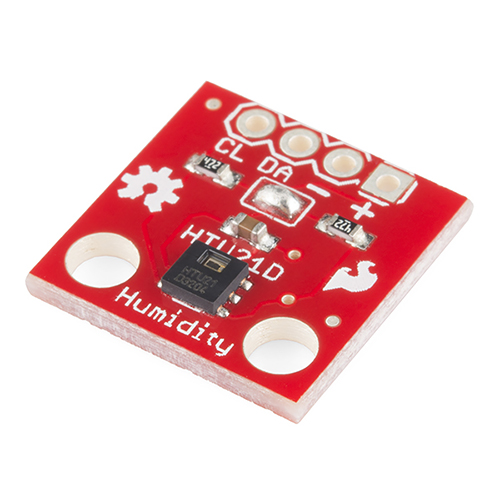
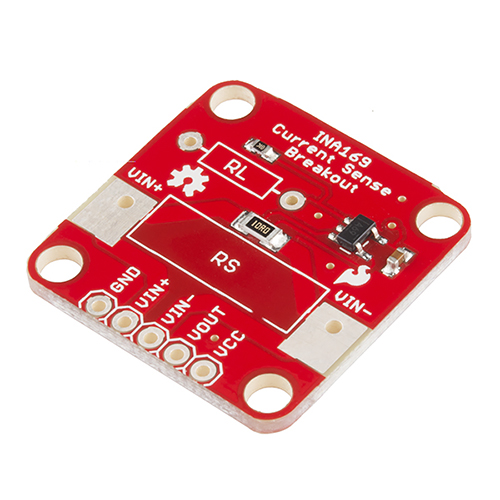
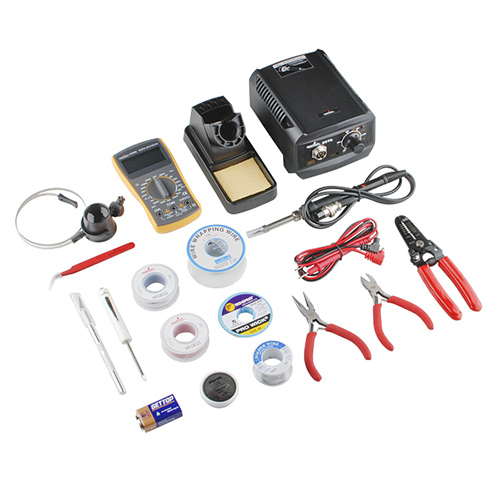
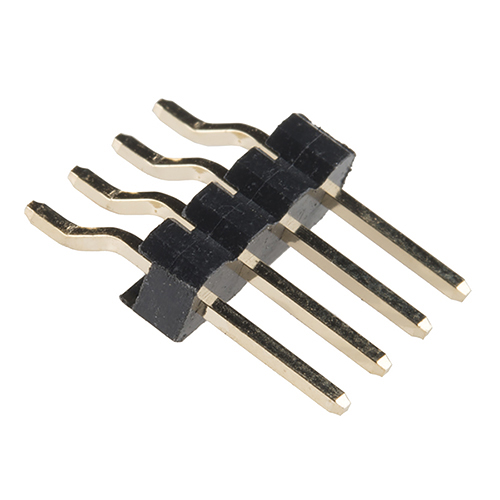
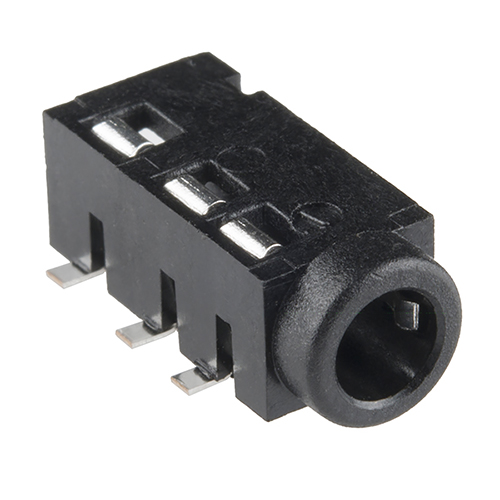
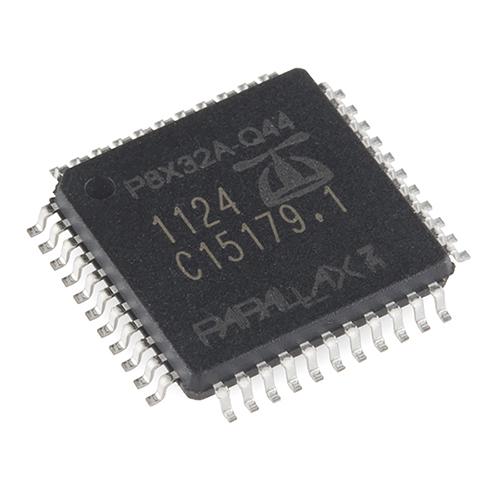
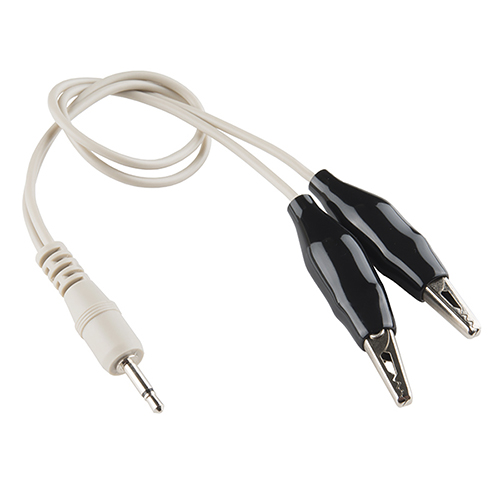
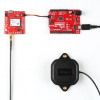
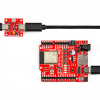





It's a bit late now, but i sure wish all of the little i2c sensor breakouts had the power and data pins in the same order. It would be nice to be able to build a little sensor bus by just plugging them into some stripboard or ribbon cable. Instead I have to make breakouts for breakouts :(
not a bad idea. not sure how to go about it, but it's worth thinking about.
So the picture at the front of the video has no video to go with it? For shame! I really wanted to see Robert get tweezed!
Hear Hear!
You guys should make an app for android.
The link in "The INA169 is a high-side current monitor" is broken. The photo link works though.
You short changed the processor speed on the Beaglebone Black a bit, it is 1 GHz, not 800 MHz. The product page has it correct.
That H2OhNo! is a solid product offering, and represents the best of SparkFun: a small board incorporating a relatively exotic sensor, a programmable microcontroller, an LED and sound-emitting device, and even the means to power everything. All this for a reasonable price and support too. Keep it up guys!
I love these videos, but Rob doesn't seem to be enjoying the name of the products. He seems like a really good sport about it, though.
I work with what I'm provided. I don't name our own products.
Hello, I'm currently prototyping a new inavative space heater that will an can actually heat your home and really save energy unlike all these China built space heaters, I'm currently looking for someone to build and design me a control board with a remote control to operate basic functions. This should fall under FCC 15.103 exempt devices. If someone can point me in the right direction on who can help me build and design the control component s for me. That would be great. Thanks
We generally recommend folks check out Rugged Circuits for custom prototyping work such as this. Best of luck!
The H2OhNo kit is cool, but I'm curious how it would be integrated into another system. If you're sensing the presence of water, is it like a flood alarm?
seems to me that the picture at the beginning of the video is in bad taste on the 50th anniversary of JFK's death. are you trying to emulate the arrest of Oswald for some kind of humor?
http://upload.wikimedia.org/wikipedia/commons/2/20/GeraldHill-B.jpg
Taste, interpretations and any perceived significance to today's date aside; http://knowyourmeme.com/memes/dont-tase-me-bro
See Kamiquasi's post below. Hence the title ("Don't tweeze me bro!"). Definitely has nothing to do with Oswald - that is Rob's head photoshopped onto the "don't taze me bro" guy.
What about the power requirements for the HDMI->VGA converter? How much current does it try to source from the HDMI port? The power pins on HDMI are meant to supply only some I2C EEPROMs for DDC monitor identification, so they often cannot provide much current.
E.g. Raspberry Pi can source only few milliamps tops and most such converters either simply don't work with it or can even fry it. I had to hack mine to add external power to it to use it with the Raspberry Pi.
I would read the HDMI spec on power usage, this should give you the answer you seek.
Oh no!